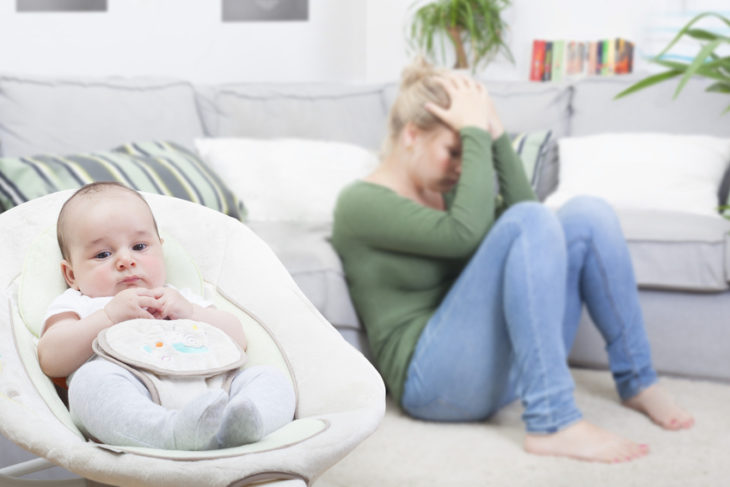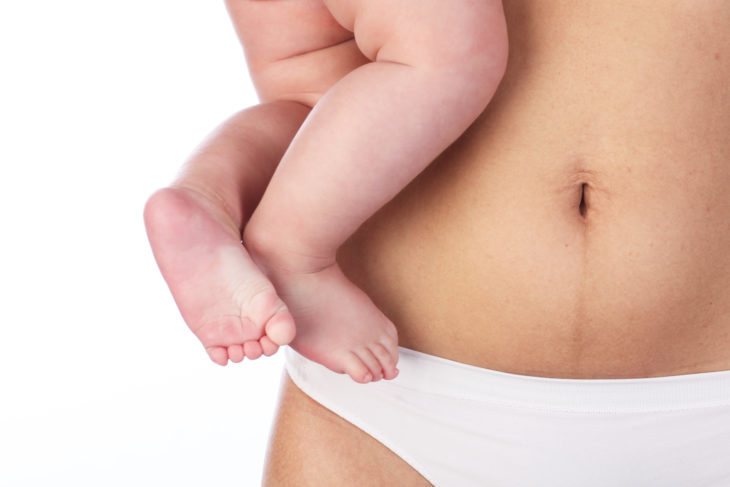It’s no secret that becoming a new parent can be one of the most trying times in a person’s life. Seven years later, I can still vividly remember those first few hours and days together, despite the foggy haze of sleeplessness I was in. A plethora of hormones coursed through my body, screwing with my emotions. I’d be happy but I’d cry, I’d be sleepy but couldn’t quell the anxiety that gripped me. I had read countless books and taken a few classes in order to prepare me for this moment. I still felt completely out of my depths.
Welcome to motherhood.
Thankfully, I had an incredible support system: an equally tired husband who had managed to cobble together a month of paternity leave (through FMLA, using up paid vacation, and taking unpaid time off), parents and in-laws who lived no more than two hours away, a doting doula who helped me not only through labor and delivery but with breastfeeding as well, eager friends, and even a visiting nurse provided by the hospital via our insurance. I was fortunate and privileged. Besides many sleepless nights and some stained shirts, I escaped my son’s infancy relatively unscathed. Yet, the same can’t be said for everyone.

Source: neuropsychiatrichospitals
I’ve seen a many people linking to a Daily Mail piece about a UK mother who struggled with breastfeeding, felt sad and depressed, made several cries for help, and in the end, sadly, took her own life. Joe Bingley, who died in 2010, left behind an infant daughter and husband. She suffered from postpartum depression (PPD), but was ignored by doctors when she told them how she felt. Joe’s husband, Chris, continues to fight to this day for answers as to why nobody helped his wife.
Unfortunately, Joe’s story isn’t so unusual. It’s most certainly seen here in the United States with various outcomes. Blogger Shannon Sutherland faced many of the same struggles as Joe, dealing with both lack of support and mounting pressure. Shannon, who gave birth to her daughter Amelia in a New York City hospital, recounts what she calls, “the worst experience of my life.”
Shannon’s challenges began in the hospital, when she had a tough time nursing her new daughter after birth, despite having taken an infant care class. She was told that all the lactation consultants had already left early for the weekend, and there wasn’t somebody specifically trained in breastfeeding to help her. After a weekend with no help, Shannon broke down and refused to leave the hospital without seeing a lactation consultant, who in the end, only gave her 10 minutes of time.

Source: Shutterstock
Shannon stopped breastfeeding after five days because of suicidal thoughts. She told me:
I was so tired I was afraid I would drop my daughter so my in-laws moved in and gave my daughter formula while I slept in the next room. I felt better for a bit but after a week the suicidal thoughts came back. Not being able to breastfeed isn’t the entire reason I suffered PPD but it didn’t help at all. It made me feel like shitty mom and I felt unimportant because of how horrible the hospital treated me.
Shannon said that nobody at the hospital asked about her family history which is filled with many suicide attempts, with some ending in death. She also suffered from an eating disorder in college, for which she received therapy. Shannon laments, “It would have taken a doctor less than five minutes of talking with me to know I was at risk for PPD.”
Unfortunately, her ordeal was far from over:
“I called my doctor’s office a couple of times to try and talk to him about my suicidal feelings but the nurse wouldn’t let me through to him. Finally, I told her I thought I may have PPD and she asked if I was breastfeeding and I said no and she told me I should have breastfed because that helps prevent PPD. That hurt so bad I just hung up the phone. At my six-week check up, I finally saw my doctor and I said I was feeling depressed and he said I didn’t look that bad but if I felt the need to hurt myself or my daughter I should go to the ER. I didn’t want to go to a hospital and possibly have my daughter taken from me. I had a husband and in-laws who were helping me care for her. I just needed help with my depression.”
In the end, it was Shannon and her husband who had to do the footwork to find a doctor who could treat her for PPD. Most were booked or had appointments three or four weeks out, too long for her to wait with how she was feeling. Eventually, Shannon was able to find help and get better, but it was a long journey. She stresses that the lack of care that surrounded her postpartum depression can happen to anyone, anywhere. “When I tell people my story they think I delivered my daughter in the middle of nowhere because of the care I received,” she said. “But, nope. This all happened in the Upper East Side of Manhattan.”
And, like Joe Bingley, Shannon is not alone. The rate of women suffering from postpartum depression has risen in the last five years, and those numbers only point to the cases being diagnosed and treated. According to Liz Friedman, Program Director for MotherWoman —a PPD and family advocacy and support organization in Western Massachusetts — there needs to be a radical shift in the way we look at, talk about, and treat postpartum depression.

Source: Shutterstock
“One in every 1,000 mothers experience postpartum psychosis,” Liz told me. “These women are in crisis and need to be identified and cared for immediately. There are so many mothers out there who are in desperate need and who remain at risk for falling through the cracks without a system in place to catch them. We must create comprehensive safety nets that help ALL mothers when they are facing perinatal emotional complications.”
Organizations like MotherWoman are doing all they can developing replicable, evidence-informed models to support communities in creating comprehensive safety nets across silos of care and therapeutic, psychosocial support groups which ensure that mothers have access to destigmatizing, effective care when they need it the most. They also provide support groups for mothers, train medical professionals and community leaders in recognizing and helping women with PPD, and work toward legislation and policy reform that will hopefully reach many more women and families in need. We now just need more people to get with this program in order to reach the one in eight mothers worldwide who experience some form of postpartum depression.
The way our society treats (or rather, fails to treat) women with PPD is just one of the many reasons I started to work on my new book, The Good Mother Myth: Redefining Motherhood to Fit Reality, an anthology that tackles what it means to be a “good mother.” The book is filled with stories from many women, including one with a story all too similar to Shannon’s. Yet, as a society, we focus more on manufactured mommy wars than on fighting to find ways to support and uplift mothers, fathers, children and families. For the Joes, the Shannons and every mother like them, this needs to change.
If you are a mother who may have PPD (or you love a mother you suspect may have PPD) and need support, find more resources and local support at Postpartum International.
Original by Avital Norman Nathman
